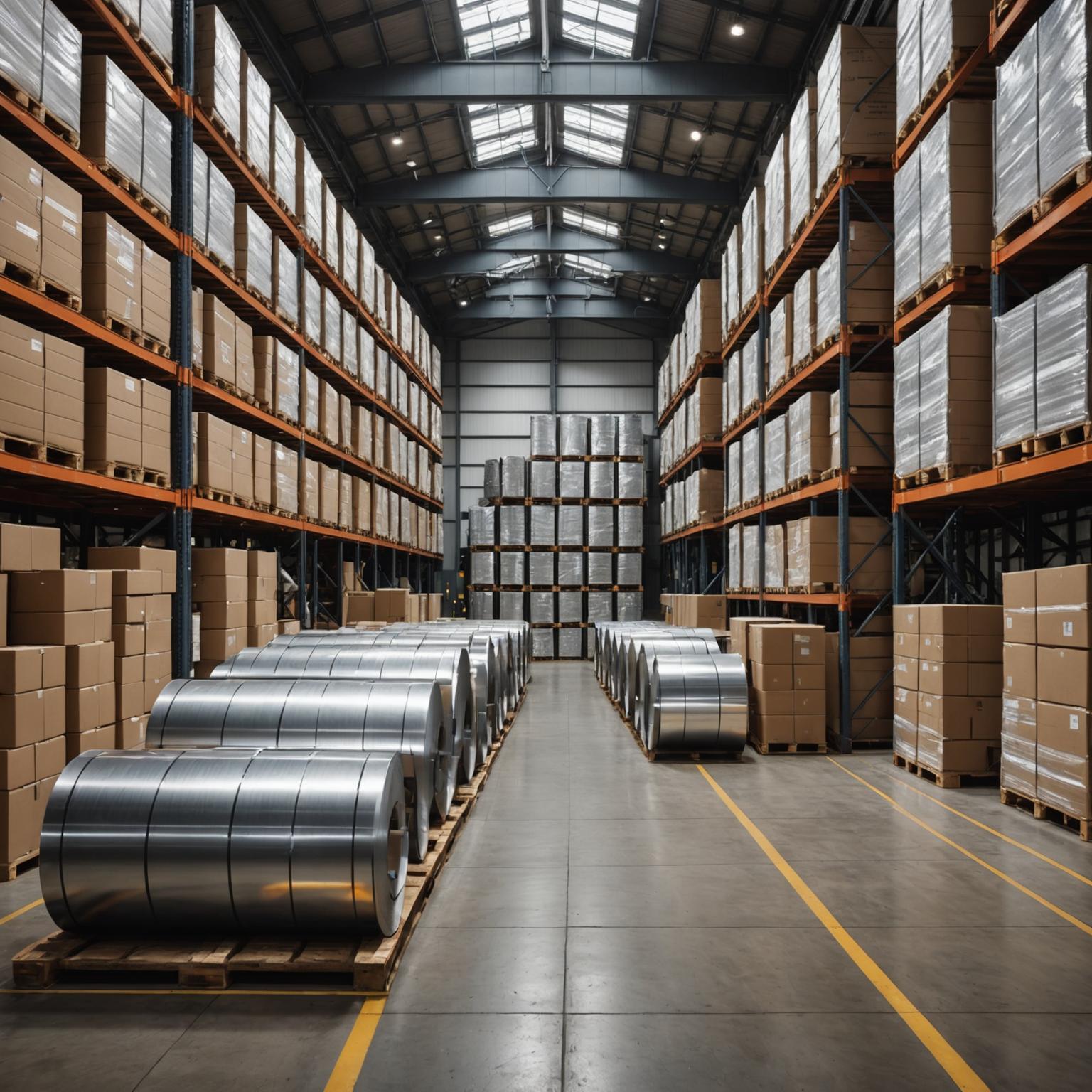A Comprehensive Guide to Stainless Steel Coil Uses

Stainless steel is one of the most versatile and widely used materials in the modern world, prized for its strength, durability, and exceptional corrosion resistance. When supplied in a coiled form, its utility expands even further, allowing for efficient transport, storage, and processing. This guide explores the extensive range of stainless steel coil uses, showcasing how this remarkable product serves as a cornerstone for innovation across countless industries. From towering skyscrapers to intricate medical devices, the applications of this precision-crafted material demonstrate its indispensable role in contemporary engineering and design. Our premium-grade stainless steel coil, fashioned from meticulously treated alloys, offers a foundation of quality and reliability for any project you can envision.
Construction and Architecture: Building the Future
In the construction and architectural sectors, stainless steel coil is a material of choice for both structural and aesthetic purposes. Its inherent strength-to-weight ratio makes it ideal for creating robust structural components, supports, and frameworks that can withstand significant stress and environmental exposure. Architects and designers value its sleek, gleaming surface for creating visually stunning building facades, roofing, and decorative cladding that resist weathering and maintain their appearance for decades. The material's superior corrosion resistance ensures longevity, reducing maintenance costs and providing a sustainable solution for modern buildings. Whether it's for cutting-edge architectural projects or foundational elements, stainless steel coil provides the perfect blend of form and function, enabling the construction of safe, durable, and beautiful structures.
The Automotive Industry: Driving Performance and Style
Another significant area of application for stainless steel coil is the automotive industry. Vehicle manufacturers rely on it to produce a wide array of components that demand high performance and longevity. One of the most common uses is in exhaust systems, where the material's ability to withstand extreme temperatures and corrosive gases is critical. Beyond performance, stainless steel is used for aesthetic trim, grilles, and other exterior parts that enhance a vehicle's appearance. Its resistance to rust and road salt makes it far superior to other metals. Furthermore, it is increasingly used in structural components to improve crash safety and reduce vehicle weight, contributing to better fuel efficiency. The versatility to be formed into complex shapes makes it a quintessential choice for forward-thinking automotive design and engineering.
Manufacturing and Industrial Equipment: The Backbone of Production
The industrial and manufacturing landscape would be unrecognizable without stainless steel. Stainless steel coils are the raw material for fabricating a vast range of equipment, including storage tanks, pressure vessels, pipes, and heat exchangers. Its non-reactive and corrosion-resistant properties are essential for industries like chemical processing, oil and gas, and food and beverage, where product purity and equipment longevity are paramount. High-performance machinery components are often machined from stainless steel to ensure they can endure rigorous operational cycles without failing. The material's durability means less downtime for repairs and a longer service life for critical industrial assets, making it a cost-effective and reliable choice for any demanding manufacturing environment.
Home and Commercial Appliances: A Touch of Elegance and Hygiene
Look around any modern kitchen, and you will undoubtedly find stainless steel. Coils of this material are pressed, cut, and formed to create everything from kitchen sinks and countertops to the gleaming exteriors of refrigerators, ovens, and dishwashers. The appeal is twofold. First, its non-porous surface is incredibly hygienic, as it resists bacteria growth and is easy to clean and sanitize—a crucial feature for food preparation areas. Second, its timeless, sophisticated appearance complements any design aesthetic, from industrial to contemporary. The same qualities make it popular for manufacturing cookware, cutlery, and other household items that require durability and a clean, elegant finish.
Medical and Pharmaceutical Applications: Ensuring Safety and Sterility
In the healthcare sector, there is zero compromise on quality and hygiene. Stainless steel is the gold standard for this industry due to its unique combination of properties. It can be sterilized repeatedly without degrading, is highly resistant to corrosion from bodily fluids and cleaning agents, and is non-reactive. Stainless steel coils are used to manufacture surgical and dental instruments, operating tables, medical carts, and sterile storage cabinets. Furthermore, it is a key material in the production of medical implants and devices, where biocompatibility and strength are critical. The reliability of stainless steel ensures patient safety and supports the sterile environments necessary for modern medicine and pharmaceutical production.
Energy Sector: Powering a Sustainable World
The demands of the energy sector, from traditional power plants to renewable energy installations, require materials that can perform under extreme conditions. Stainless steel coil is used extensively to manufacture components that must withstand high pressures, elevated temperatures, and corrosive environments. In nuclear power plants, it is used for containment structures and cooling systems. In the oil and gas industry, it forms pipelines and platform components exposed to harsh marine environments. For renewable energy, such as solar and geothermal power, stainless steel provides the durable, long-lasting framework and fluid-handling components needed to harness nature’s power efficiently and reliably, making it a key material in the transition to a more sustainable energy future.








